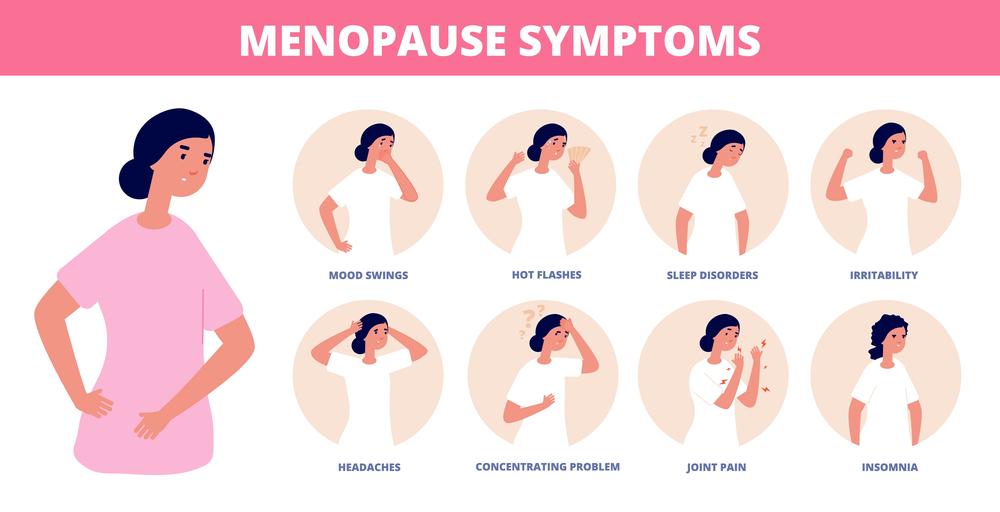Menopause is a natural biological process that marks the end of a woman's menstrual cycles. It typically occurs between the ages of 45 and 55 but can vary widely from woman to woman. While it’s a normal part of aging, the changes brought about by menopause can have a significant impact on a woman’s physical and emotional well-being. Understanding its causes, symptoms, and available treatments can help women manage this life stage more comfortably.
What Causes Menopause?
Menopause occurs as a result of the ovaries producing fewer reproductive hormones, particularly estrogen and progesterone. As hormone levels decline, the menstrual cycles become irregular and eventually stop. This phase is usually divided into three stages:
-
Perimenopause: This is the transition period leading up to menopause, where hormone levels fluctuate, causing irregular periods and symptoms like hot flashes and mood swings.
-
Menopause: Menopause is confirmed when a woman hasn’t had a menstrual period for 12 consecutive months.
-
Postmenopause: The years following menopause, where symptoms may ease but health risks, such as osteoporosis or heart disease, increase due to reduced estrogen levels.
Common Symptoms of Menopause
Every woman experiences menopause differently, but some common symptoms include:
- Hot Flashes: Sudden feelings of heat, especially in the upper body.
- Night Sweats: Excessive sweating during sleep, often leading to disturbed rest.
- Mood Swings: Emotional ups and downs due to fluctuating hormone levels.
- Vaginal Dryness: Reduced moisture in the vaginal area, leading to discomfort during intercourse.
- Irregular Periods: Periods may become lighter, heavier, or occur at irregular intervals before stopping altogether.
Other symptoms may include fatigue, weight gain, joint pain, and difficulty concentrating.
Managing Menopause Symptoms
While menopause is a natural process, some women may experience severe symptoms that require treatment. Here are some approaches to managing menopause:
-
Hormone Replacement Therapy (HRT): HRT is one of the most effective treatments for relieving hot flashes, night sweats, and vaginal dryness. It involves replacing the estrogen and progesterone that the body no longer produces.
-
Lifestyle Changes: Regular exercise, a balanced diet, and avoiding smoking and excessive alcohol can help reduce the severity of symptoms.
-
Non-Hormonal Treatments: For women who prefer not to take hormones, medications like antidepressants or other non-hormonal therapies can help manage symptoms such as mood swings and hot flashes.
-
Herbal Remedies and Supplements: Some women find relief through herbal remedies such as black cohosh or soy isoflavones, though their effectiveness may vary.
-
Consulting a Specialist: The best way to manage menopause is to work with a healthcare provider to develop a personalized treatment plan. Consulting the best gynecologists in India can provide the necessary support and guidance through this transition.
Why Consult a Gynecologist for Menopause?
Gynecologists specialize in women’s health and can offer expert advice on managing menopause. They can guide women through hormone replacement therapy, screen for menopause-related health risks like osteoporosis, and recommend lifestyle changes to ease symptoms. A consultation with the best gynecologists in India can help women better understand their options and navigate this significant life change more smoothly.
Conclusion
Menopause is a natural part of aging, but the symptoms can be disruptive to a woman's daily life. With the right knowledge, support, and treatment options, women can effectively manage this transition. Whether through lifestyle changes, medical interventions, or natural remedies, consulting a gynecologist ensures that women receive the best care during menopause. Seeking advice from the best gynecologists in India can provide the guidance necessary to maintain a healthy and balanced life through and after menopause.

